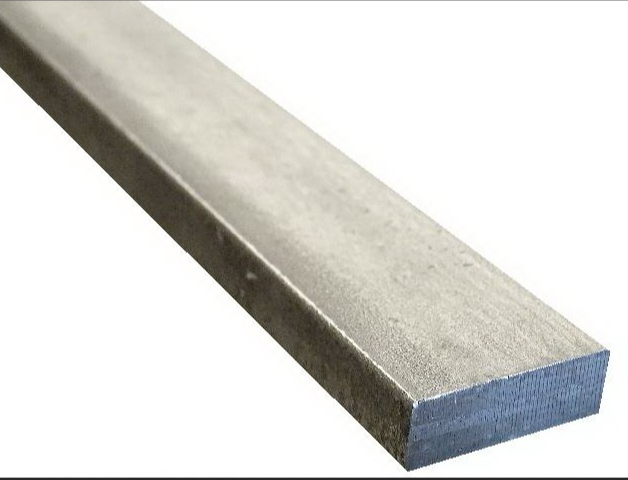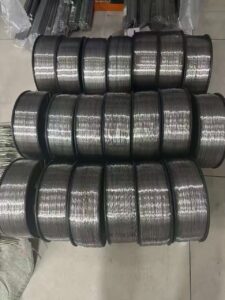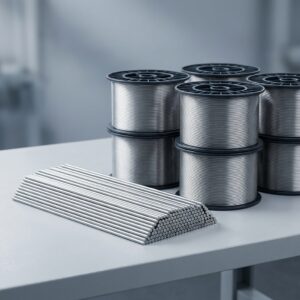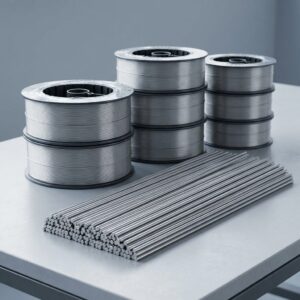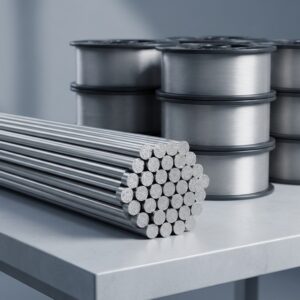Unveiling the Marvels of 60SiCr7 Spring Steel: A Comprehensive Exploration
Introduction
In the realm of materials engineering, certain alloys emerge as pillars of innovation and reliability. Among them stands 60SiCr7 Spring Steel, celebrated for its exceptional properties crucial for spring applications. Join us as we embark on a journey to uncover the intricacies and advantages of this remarkable alloy, delving into its composition, properties, applications, suppliers, pricing, and expert insights.
Overview of 60SiCr7 Spring Steel
60SiCr7 Spring Steel stands out for its excellent combination of strength, resilience, and flexibility, making it a top choice for spring manufacturing.
Chemical Composition
| Element | Percentage |
|---|---|
| Carbon (C) | 0.56-0.64% |
| Silicon (Si) | 1.50-2.00% |
| Manganese (Mn) | 0.60-0.90% |
| Phosphorus (P) | 0.025% max |
| Sulfur (S) | 0.025% max |
| Chromium (Cr) | 0.40-0.80% |
| Vanadium (V) | 0.10-0.25% |
| Iron (Fe) | Balance |
Mechanical Properties
- Tensile Strength: 1200-1400 MPa
- Yield Strength: 1000 MPa
- Elongation: 9% (in 50mm)
- Modulus of Elasticity: 210 GPa
Standards
- EN 10089: Hot rolled steels for quenched and tempered springs
- DIN 17221: Hot rolled steels for springs suitable for quenching and tempering – technical delivery conditions
Exploring the Features and Advantages
60SiCr7 Spring Steel boasts a plethora of features and advantages that make it an ideal choice for spring applications.
Features
- High tensile strength and yield strength
- Excellent fatigue resistance and resilience
- Good machinability and formability
- Uniform microstructure with fine-grained carbides
- Enhanced toughness and durability
Advantages
- Widely used in various types of springs, including suspension springs, valve springs, and clutch springs
- Provides exceptional performance under dynamic loading conditions
- Offers potential weight reduction in spring applications due to its high strength-to-weight ratio
- Can be heat treated to achieve desired mechanical properties and spring characteristics
Comparison Between 60SiCr7 Spring Steel and Competing Alloys
Let’s compare the advantages and disadvantages of 60SiCr7 Spring Steel with a competing alloy, Alloy X:
| Parameter | 60SiCr7 Spring Steel | Alloy X |
|---|---|---|
| Tensile Strength | High | Moderate |
| Fatigue Resistance | Excellent | Good |
| Machinability | Good | Moderate |
| Formability | Excellent | Moderate |
| Cost | Moderate | Higher |
Applications and Uses
From automotive to industrial sectors, 60SiCr7 Spring Steel finds widespread application in various types of spring manufacturing.
| Industry | Applications |
|---|---|
| Automotive | Suspension springs, valve springs, clutch springs |
| Industrial | Machinery springs, agricultural equipment springs, door springs |
Navigating Suppliers and Pricing
Sourcing 60SiCr7 Spring Steel requires careful consideration of reliable suppliers offering quality products at competitive prices.
| Supplier | Price Range (per unit) | Description/Notes |
|---|---|---|
| SpringTech | $2.00 – $3.50 per pound | Specializes in spring steel bars and wire products |
| Industrial Springs | $2.20 – $3.80 per pound | Offers a wide range of spring steel solutions |
| Steel Dynamics | $2.50 – $4.00 per pound | Provides customized spring steel products |
FAQs about 60SiCr7 Spring Steel
Q: Can 60SiCr7 Spring Steel be used for high-temperature applications?
A: While it exhibits good performance at elevated temperatures, it is not recommended for continuous use above 250°C due to potential loss of mechanical properties.
Q: What is the typical hardness of 60SiCr7 Spring Steel?
A: The typical hardness ranges from 46 to 54 HRC after quenching and tempering.
Q: What are the common applications of 60SiCr7 Spring Steel?
A: Common applications include suspension springs in automotive, agricultural equipment springs, and various types of machinery springs.
Q: Where can I buy 60SiCr7 Spring Steel?
A: You can source 60SiCr7 Spring Steel from reputable suppliers such as SpringTech, Industrial Springs, and Steel Dynamics.
Q: What specifications does 60SiCr7 Spring Steel conform to?
A: This alloy steel conforms to standards such as EN 10089 and DIN 17221, ensuring compliance with stringent quality requirements.

